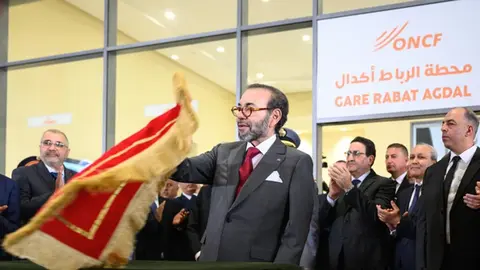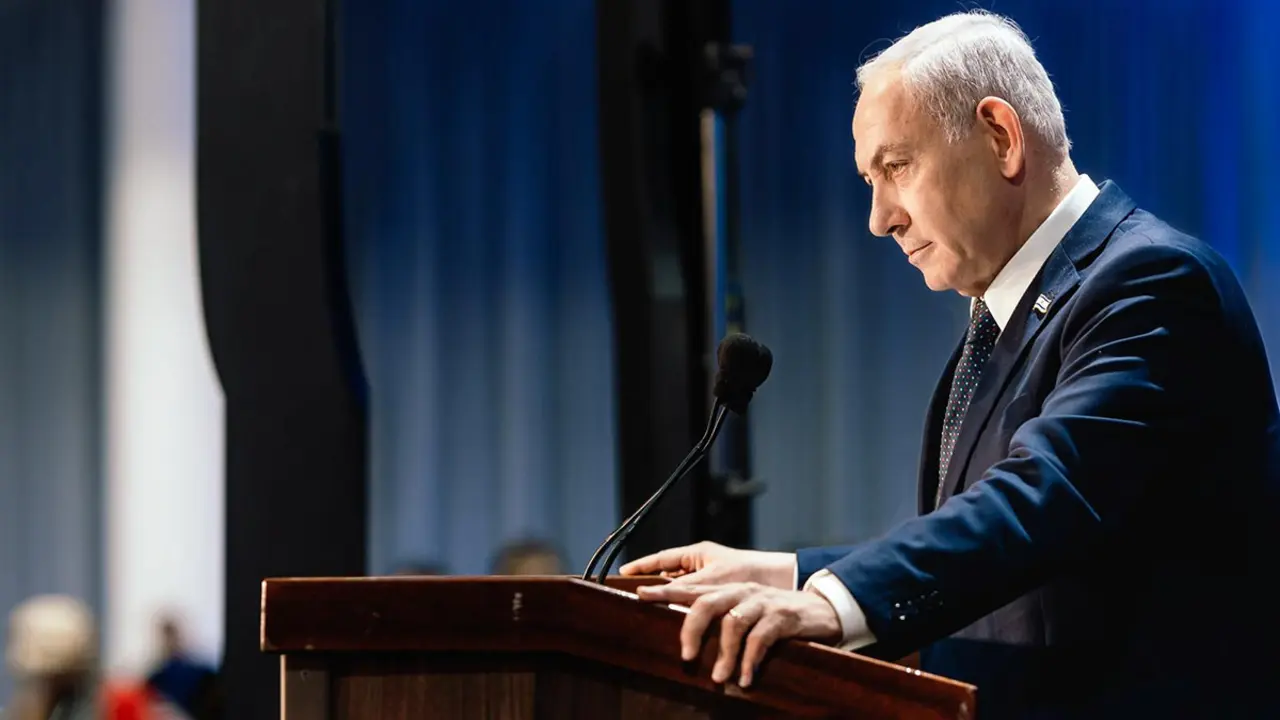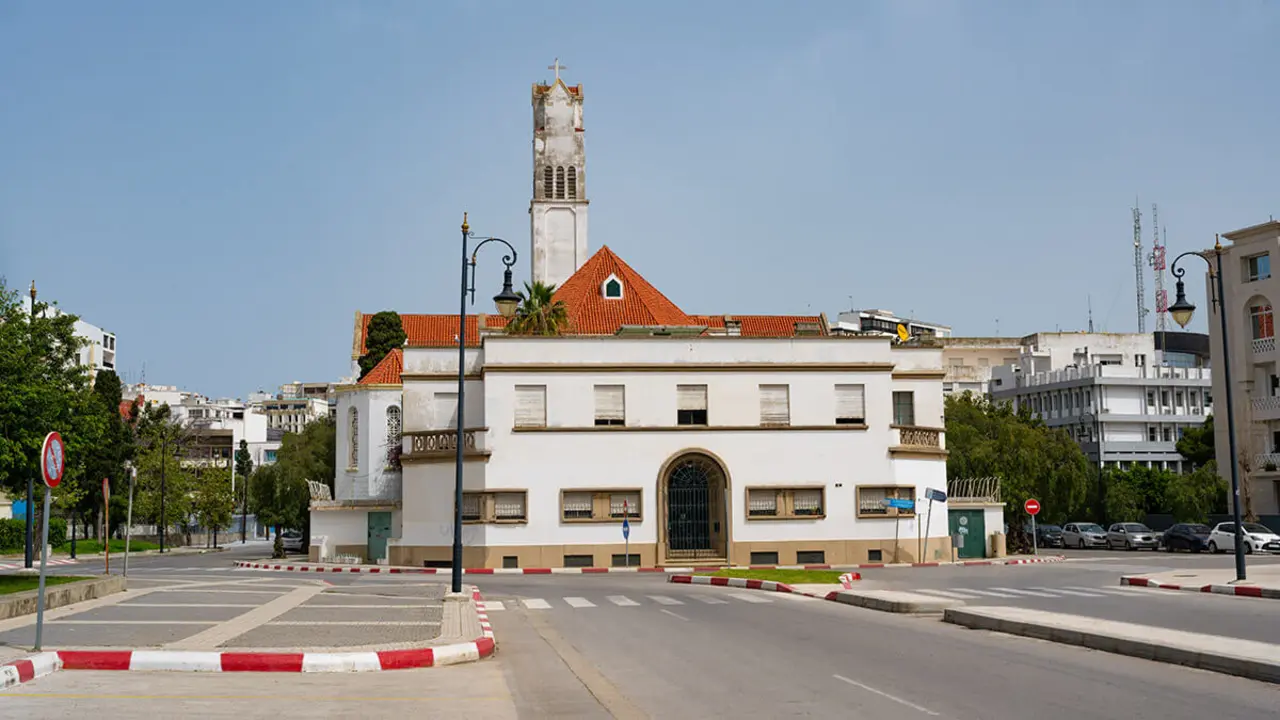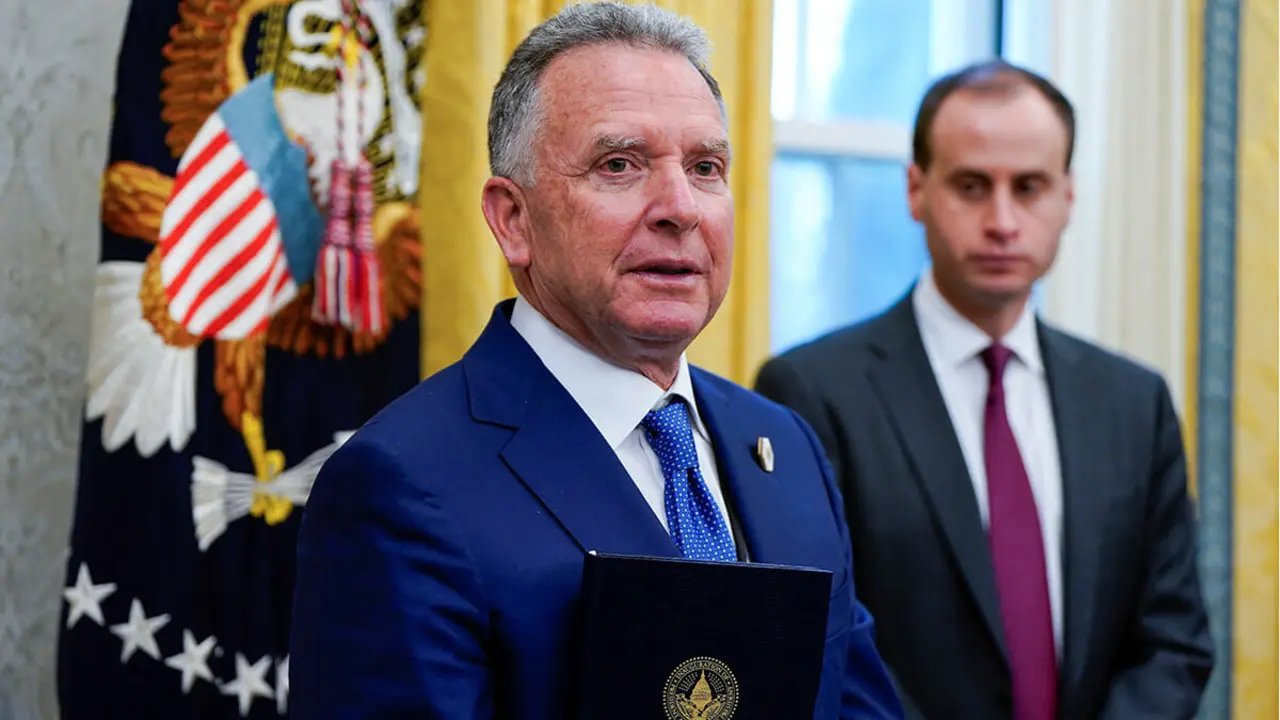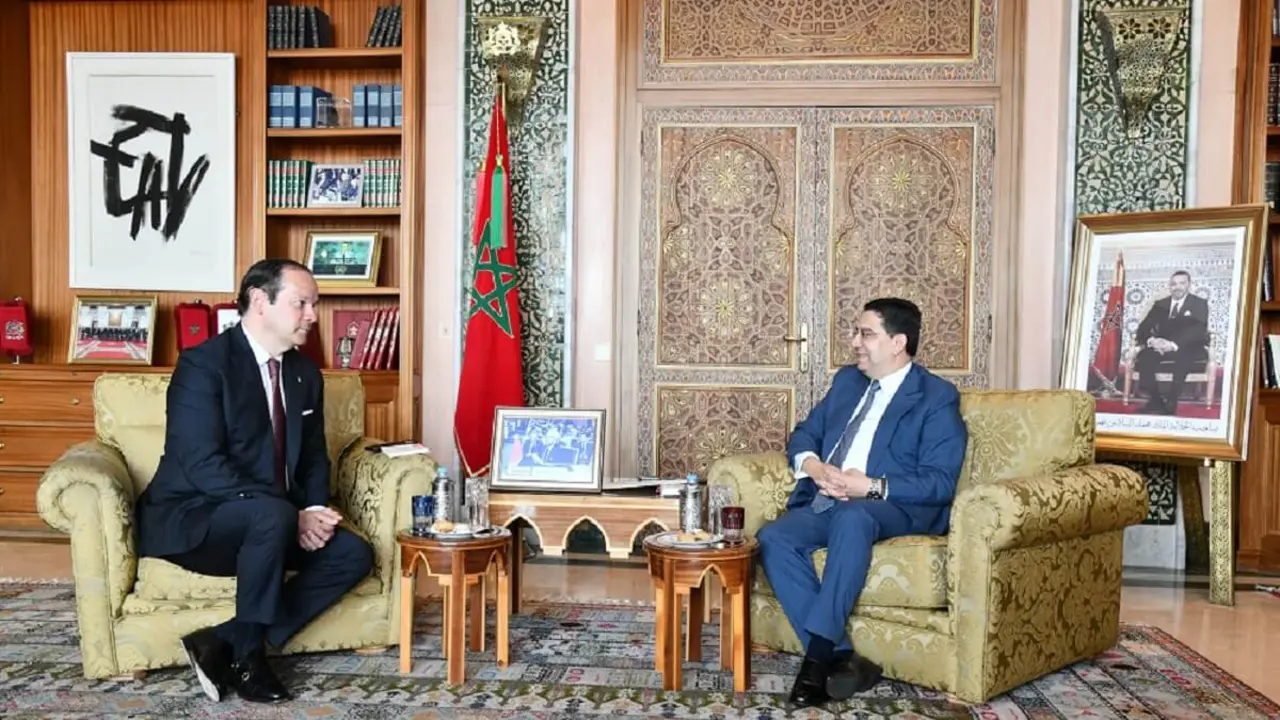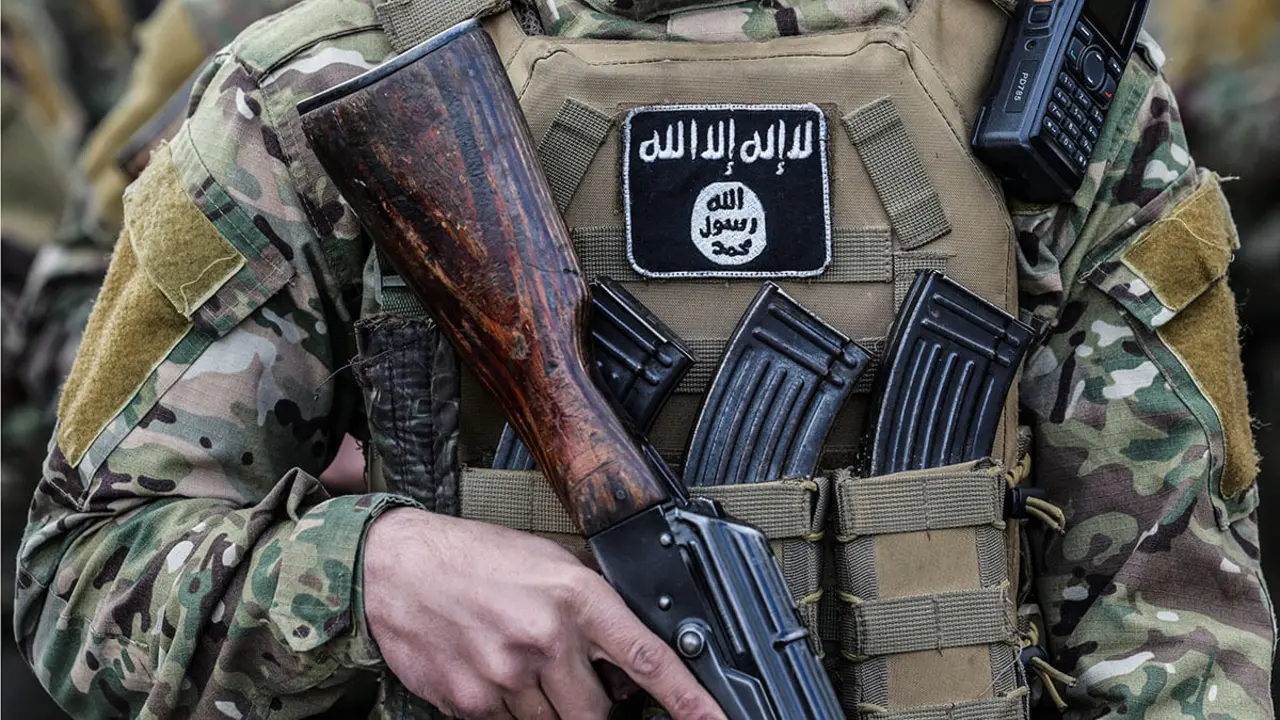Mohammed VI launches construction of the Rabat-Salé-Kénitra region's essential goods reserve platform
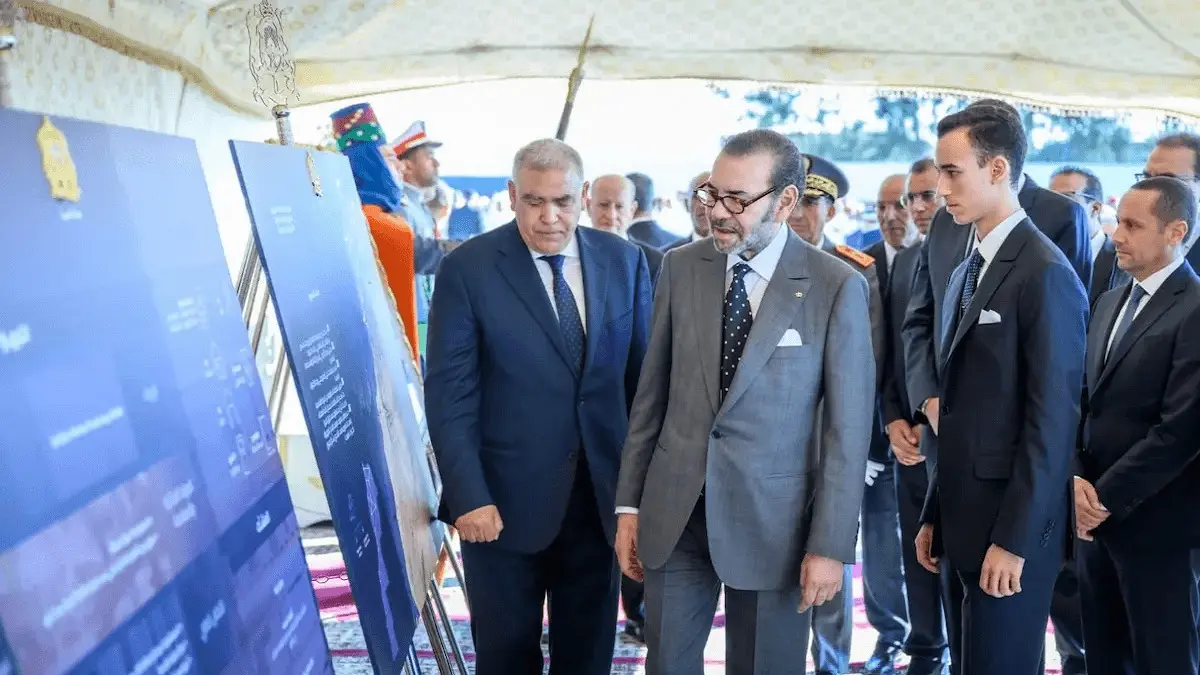
King Mohammed VI, accompanied by Crown Prince Moulay El Hassan, launched the construction of the Rabat-Salé-Kénitra region's emergency supplies platform on Wednesday in the municipality of Ameur (Salé prefecture). The platform is part of Morocco's model for resilience and rapid deployment of aid in the event of a disaster.
By order of the King, each region of Morocco will be equipped with a large platform for essential supplies (tents, blankets, beds, medicines, food, etc.) to respond immediately to disasters (floods, earthquakes, chemical, industrial or radiological risks).
The emergency supplies platform for the Rabat-Salé-Kénitra region will be built on a 20-hectare site within 12 months, with a total estimated budget of 287.5 million dirhams. This project will include the construction of four warehouses (5,000 square meters each), two shelters for large equipment (2,500 square meters each), a heliport, and parking lots.
This regional platform is part of a comprehensive program presented on this occasion to Mohammed VI, which provides for the construction of twelve platforms for a total investment of around 7 billion dirhams (MMDH), including 2 MMDH for construction and 5 MMDH for the acquisition of products and equipment.
Covering a total estimated area of 240 hectares, these platforms will house 36 warehouses distributed according to the demographic density of each region and the risks involved.
Thus, for the six regions of Casablanca-Settat, Rabat-Salé-Kénitra, Marrakech-Safi, Fez-Meknès, Tangier-Tétouan-Al Hoceima, and Sousss-Massa, the platforms will consist of four warehouses, each with a total area of 20,000 m². The platforms in the other six regions, namely Oriental, Béni Mellal-Khénifra, Drâa-Tafilalet, Guelmim-Oued Noun, Laâyoune-Sakia El Hamra and Dakhla-Oued Ed Dahab, will consist of two warehouses with a total surface area of 10,000 m2 each.
جلالة الملك يعطي انطلاقة إحداث منصة المخزون والاحتياطات الأولية لجهة الرباط- سلا- القنيطرة، تجسيد للنموذج المغربي في الصمود في مواجهة الكوارث
— TheMoroccanMonarchy (@M_RoyalFamily) May 7, 2025
HM the King Launches Construction of Rabat-Salé-Kenitra Region's Essential Reserves Platform, Morocco's Model of Disaster Resilience pic.twitter.com/nrYltk8TXR
The products and equipment to be stored there are intended to ensure, in the event of a disaster, a rapid response to benefit the affected populations and diligent and reasonable coverage of needs in terms of rescue, relief, and care in accordance with the King's Proactive Vision.
As such, these products and equipment, intended for immediate deployment following the possible occurrence of a natural disaster, cover the following main categories:
- Accommodation through the provision of 200,000 multipurpose tents and associated equipment (camp beds, mattresses, blankets, etc.);
- Catering for the affected populations through mobile bakeries and kitchens, as well as food kits for the needs of affected families;
- Coverage of the drinking water and electricity needs of affected populations through the provision of water purification and treatment equipment and electricity generation using towable generators;
- Development of rescue and disaster response capabilities. In particular, this involves stockpiling equipment for flood control, earthquake rescue, landslides and mudslides, and chemical, industrial, or radiological risk control.
- Healthcare for affected populations by placing six 50-bed field hospitals on standby during the first phase, followed by six more during the second phase, including emergency surgical units and medical units for various specialties. This mobile hospital infrastructure will be supplemented by the installation of advanced medical posts in the affected areas for triage and first aid. In this context, reserves of medicines will also be made available to meet the immediate needs of those affected.
The storage of food and medicines will be managed by specialized teams and will be subject to very strict rules, in accordance with the relevant norms and standards.
The creation of these platforms will contribute to the development of national emergency infrastructure, improve the overall crisis response system, ensure greater diligence in the delivery of relief and assistance to disaster victims, and strengthen Morocco's resilience to different types of crises.
The global program for the creation of regional platforms for essential supplies will also provide strategic reserves to meet three times the needs met after the Al Haouz earthquake, in addition to the development of a national ecosystem for the production of equipment and materials necessary for the immediate deployment of disaster relief operations.
These regional platforms, whose locations have been selected based on security criteria, have been designed on the basis of an in-depth analysis of the needs of each region of Morocco with regard to risks, supported by a study of international best practices and standards.

